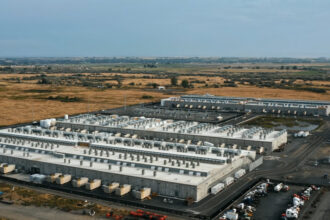In the heartland of America, Kansas businesses are forging unexpected alliances northward as trade tensions continue to reshape North American commerce. While punitive tariffs have strained traditional business relationships, enterprising Kansas companies are now actively cultivating Canadian customers as a strategic pivot to maintain growth in an increasingly unpredictable trade environment.
“We never anticipated becoming so dependent on Canadian partnerships, but it’s become our lifeline,” explains Marcus Wheaton, CEO of Wichita-based agricultural equipment manufacturer Prairie Solutions. “When domestic markets became unstable due to retaliatory tariffs, we had to look elsewhere, and Canada offered both proximity and stability.”
The shift represents a remarkable adaptation for Kansas’ economic landscape, traditionally focused on domestic markets and select global exports. According to data from the Kansas Department of Commerce, trade with Canada has increased by 17% over the past eighteen months, with particular growth in agricultural technology, specialized manufacturing, and food processing sectors.
This northward pivot comes as tariffs between the United States and various trading partners have created cascading effects throughout supply chains. Canadian businesses, similarly affected by trade uncertainties, have found Kansas companies offering competitive alternatives to their traditional suppliers.
Economic analysts at the World Trade Center Kansas City note this phenomenon reflects broader adaptations occurring throughout the American heartland. “We’re witnessing a fundamental realignment of business relationships,” explains trade economist Amara Johnston. “Companies in Kansas are demonstrating remarkable resilience by identifying alternative markets when traditional ones become less viable.”
For Prairie Creek Farms, a mid-sized specialty food producer in eastern Kansas, Canadian partnerships emerged from necessity rather than choice. “Three years ago, Canadian buyers represented maybe 5% of our business,” says operations director Elaine Summers. “Today, they’re nearly 40% of our revenue stream. The paperwork and logistics are more complex, but the stability makes it worthwhile.”
The Canadian market has proven particularly receptive to Kansas businesses offering agricultural innovations and food products. Shared climate challenges and agricultural priorities have created natural synergies between Canadian buyers and Kansas sellers, despite the bureaucratic hurdles of cross-border commerce.
Experts from the Kansas State University’s International Trade Institute highlight that successful companies have invested heavily in understanding Canadian business culture and regulatory requirements. “The businesses thriving in this transition are those who’ve taken time to understand Canadian market expectations and compliance standards,” notes Dr. Robert Chen, the institute’s director.
This emerging trade pattern may represent more than a temporary adaptation. Economic development officials in Kansas report that companies establishing Canadian relationships are increasingly viewing these connections as permanent strategic assets rather than stopgap measures.
“We initially approached Canadian buyers as a short-term solution,” admits Jennifer Knudson, sales director at Topeka-based industrial components manufacturer Heartland Precision. “Two years later, we’re expanding our Toronto office and hiring bilingual staff. What began as crisis management has become our growth strategy.”
While celebrated as a successful adaptation, this shift raises profound questions about the future of North American trade integration. As businesses create new cross-border dependencies to offset policy-driven market disruptions, how will these evolving relationships reshape the economic landscape of the American Midwest? More importantly, can these newly forged business connections withstand future trade policy fluctuations, or are Kansas businesses simply exchanging one form of vulnerability for another?

























